Drinking highballs and talking about life, creation, and food with Roads & Kingdoms co-founder Matt Goulding. A special revival episode of The Trip Podcast.
Roads & Kingdoms co-founders Nathan Thornburgh and Matt Goulding return to the mic for a revival episode of The Trip Podcast to discuss Omnivore, the wantonly gorgeous eight-episode Apple TV+ series Goulding created with Noma founder René Redzepi, on the eve of its world premiere. Each episode focuses on a single ingredient, beginning with chili and bringing readers from Redzepi’s Macedonian childhood to Bangkok, where the great chef Prin Polsuk swims in a field of dried red prik kee noo suan, to Noma in Copenhagen, where we’ll leave it to Goulding to describe what transpires. Over highballs, the friends discuss what it’s like to put together a colossal TV project, why it’s actually a hopeful show, and yes, a bit about the League of Travelers and where Roads & Kingdoms stands now.
This is an edited and condensed transcript of the conversation. You can listen to the full episode, for free, on Apple Podcasts, Spotify, or wherever you get your podcasts.
Nathan Thornburgh: Oh man, that sweet tinkling ice sound…
Matt Goulding: Isn’t that lovely? Don’t you miss this?
Thornburgh: As a matter of fact, I do… Alright, so I’ve seen some light versions of scripts when we’d talk through issues as far back as three or four years ago, but I’ve only just this morning actually seen the final finished version of a couple of these episodes. This show, it’s what you said it would be. I think that’s the highest compliment I can pay it.
Goulding: It started more than four years ago, when René called me up and said, ‘Hey, I’m thinking about finally trying to try my hand at this television thing. What do you think?’ And I asked him right away, ‘What is this? Do you want to be on television? Are we following you around the world?’ And he was very quick to say, ‘No, absolutely not. That’s not what I want. I want to make ‘Planet Earth’ basically.’ And that to me was incredible. René always represented this connection to the natural world. We discovered the best way to do this is to find a mixture of eight ingredients, each one with its own special journey, each one with its own particular commentary on who we are, and kind of put together a concept album.
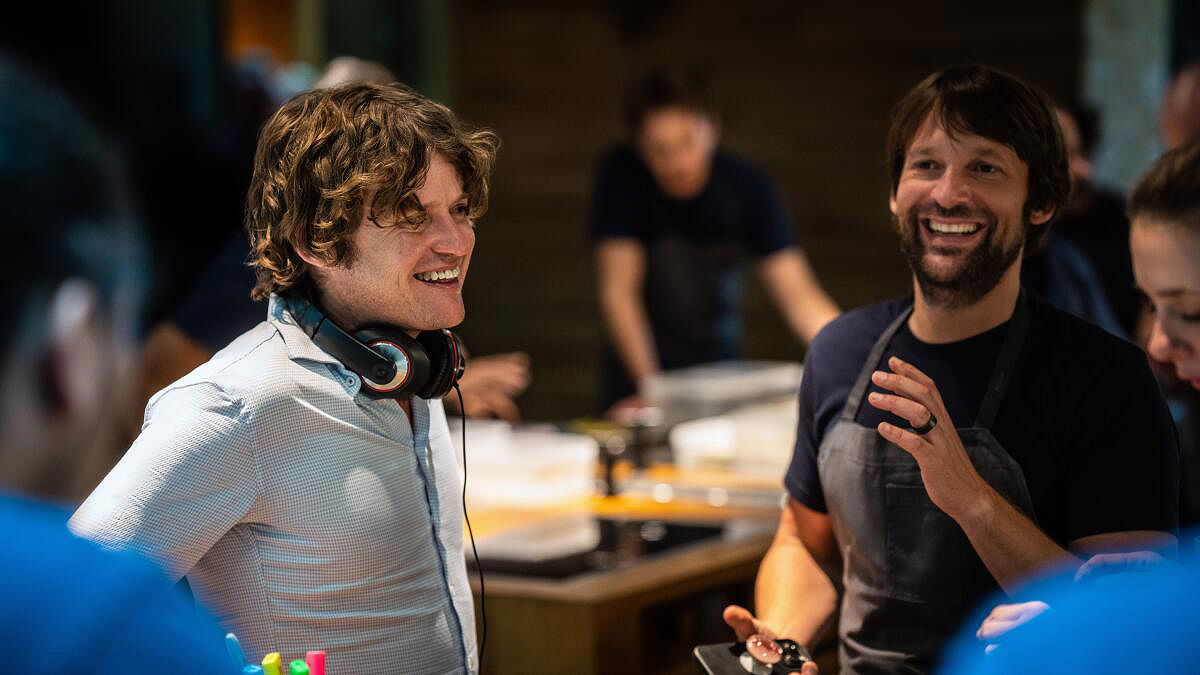
Thornburgh: I’ve seen you go into meetings where people with more money and power than us suggest something utterly mediocre, and you, realizing the scarcity of life and creative output, saying, ‘Nope, not going to do that. I’m gonna do this other thing, which is way better.’ Apple is sending a car for you soon, and they’re treating you nice here in New York. I’m not asking you to throw your cruel overlords under the bus. But what is that process like?
Goulding: It was the hardest thing that I’ve had to do on a professional level or on a personal level by some crazy multiple. And that includes the insane years of writing the “Eat This Not That” franchise books at a clip of three or four books a year, the work that we did with Tony and the insane kind of R&K buildup. This was just kind of a different beast, a different scale, a different flavor of amorphousness in terms of how it was just always shapeshifting. We had thousands of people who worked on this over the course of 16 countries and five continents, we had directors from six different countries. But above all, for me, the hardest part was just the doubt that you have about yourself. Those internal crises of confidence are the most nefarious, the only thing that can really stop you in your tracks.
In the same way that Tony looked at food through every prism of the cultural, political, and social spectrum, René does that through the natural world.
Thornburgh: What makes this such an amazing project is that you’ve created something that nobody else could have created in food television. The pressure is so strong. And I think you and I both live in a particular corner of that pressure, where everybody’s asking about the fucking “next Bourdain.” Everybody wants a hosted show. When you and I have pitched things that have been rich in ideas and everything, they’re like, great, you know, here’s a list of five pretty good actors who are now going to be the face of this project, and you’re just like, this can’t possibly be true. And in order for you to have made this, you had to fit through an impossibly small window of opportunity to find René. I think it takes an unusual person to say, ‘No, I’m not going to be just sitting there sniffing ingredients in front of the camera.’
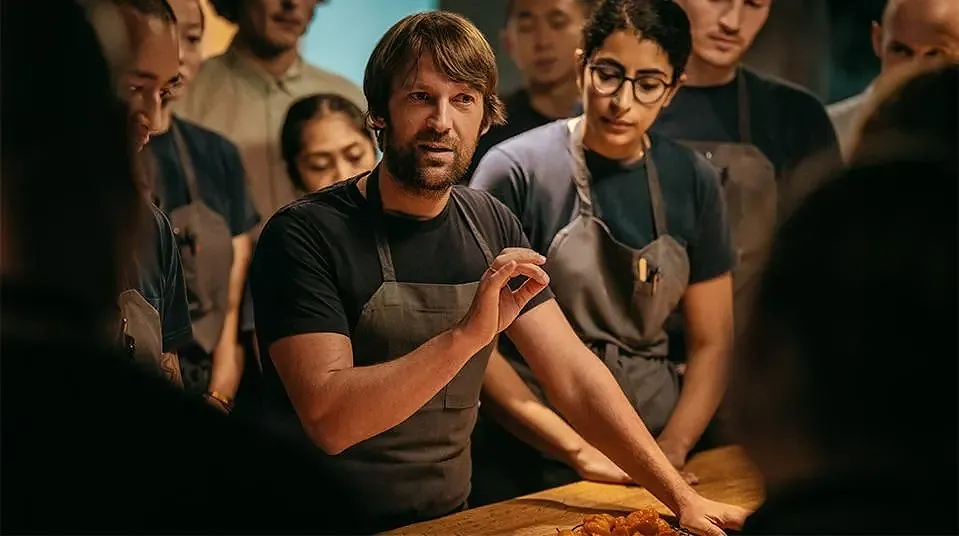
Goulding: To Apple’s credit, they went in on this series knowing that that was not the formula that we were going for and knowing that we’re trying to do something outside of the box. This is the first food show they’ve ever done. So this is essentially the launch of whatever new Apple food future they want to have in television. And they were super supportive throughout, but the truth is, I don’t think that you can make the show with somebody else that’s not René, because of how he looks at food, how he speaks about it, what he embodies.
For 99 percent of our time on this rock, the predominant question that drove us wild was what’s for dinner?
Goulding: Above all, René has this incredible sense of childlike wonder and awe-inspiring interest in watching food grow and transform and being a part of that. And I think that enthusiasm really comes through. A series about how food can explain who we are can be pretty dark, honestly, because every one of these ingredients has incredibly dark stories. You want to tell a dark story about coffee? Take your pick, just throw a dart at the tropics, and you’ll land on an incredibly dark story. Banana is really one of the most nefarious fruits, if not all ingredients period, in terms of its ability to rewrite the geopolitical map as it did in 20th-century Latin America.
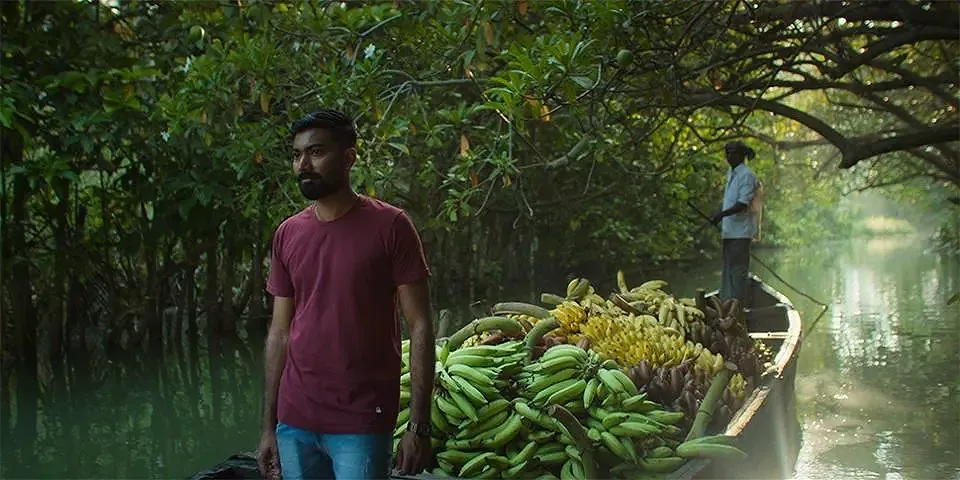
Goulding: And we don’t want to shy away from that, but at the same time (we’re) trying to celebrate the power of food to transform and remind people that for 99 percent of our time on this rock, the predominant question that drove us wild was what’s for dinner? And the answer to that question has shaped the world in the most profound ways. And this series is basically trying to reestablish the urgency of that question. You know, most of us are fortunate enough that it doesn’t have the urgency that it used to have a few centuries ago, but it should. Because if we can’t get it right, if we can’t get food right, you don’t have any hope for the rest of this stuff.
Food has always felt like, and is indeed, the front line for human survival.
Goulding: If we can’t figure out how to feed ourselves in a way that doesn’t entirely destroy the planet or our own bodies or the people who grow and distribute that food, then we’re really screwed. And so this feels like kind of the front line. Food has always felt like, and is indeed, the front line for human survival. And hopefully some version of that is not us standing alone as the monoculture, but us as the polyculture. Us as the milpa, as we say, in the last episode of the series, which is about corn.
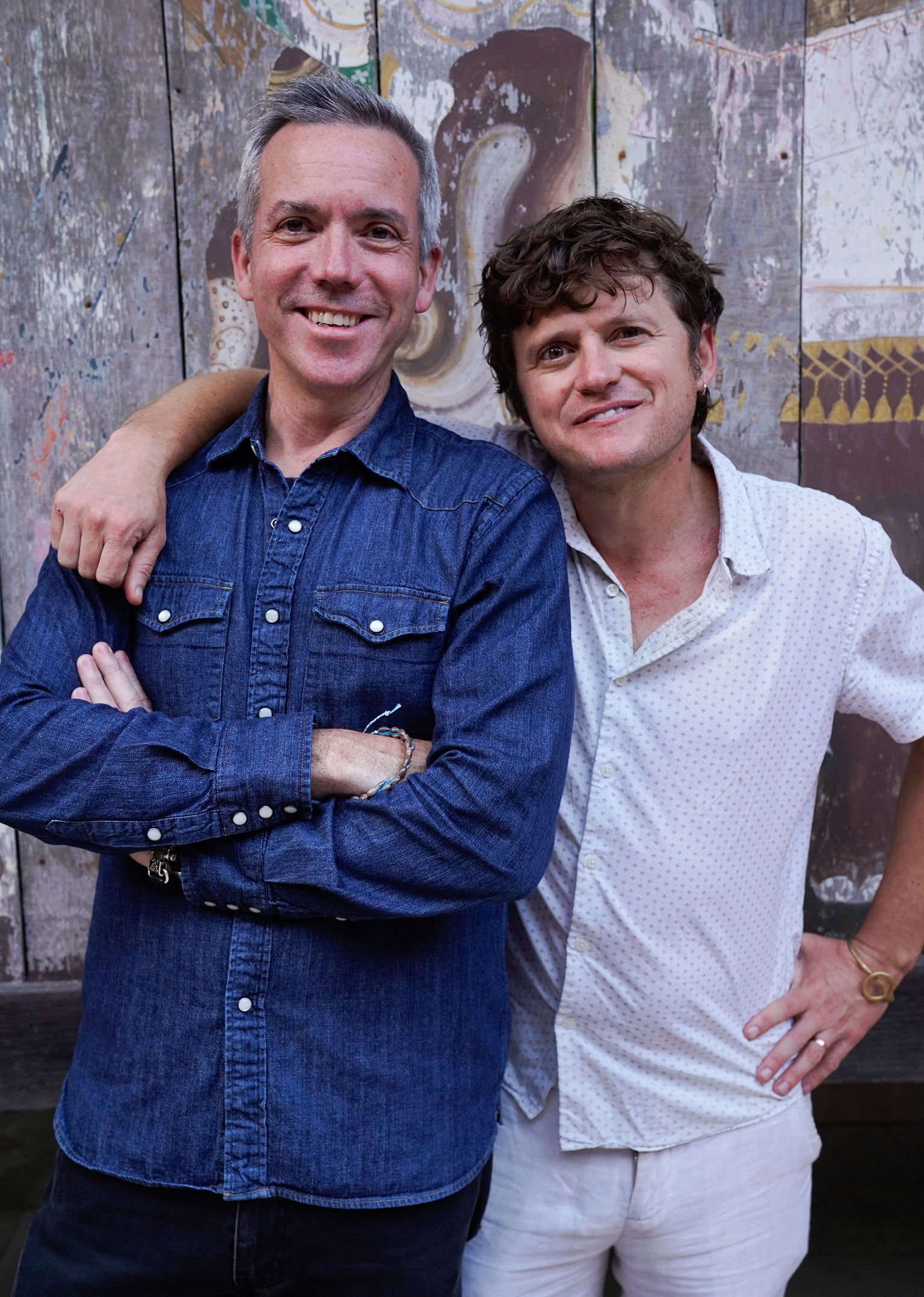
Goulding: As it pertains to Tony and the pressure that you talk about, because you feel that and you hear it and you get these messages from people like, ‘Hey, you guys need to carry this thing forward, keep going.’ That’s an incredible thing to hear, but it’s also like, what does that even mean? And I think ultimately, for me, what it actually means is: what is something that I can make that can only be made because Tony made something before me? And that to me is “Omnivore.”
I just don’t think that the world would be ready for something like this if we hadn’t taken the incredible leaps forward in terms of storytelling that Tony did.
Thornburgh: Explain that connection.
Goulding: I just don’t think that the world would be ready for something like this if we hadn’t taken the incredible leaps forward in terms of storytelling that Tony did in “No Reservations” and “Parts Unknown.” And in his writing, his way to shine that incredible big, beautiful light of his on food as the lens, as the decoder ring, to human society, was the necessary step. So those are the shoulders that we stand on. And at the same, I don’t think you get the kind of the investment and support from someone like Apple unless there’s a precedent that’s been set by somebody before.
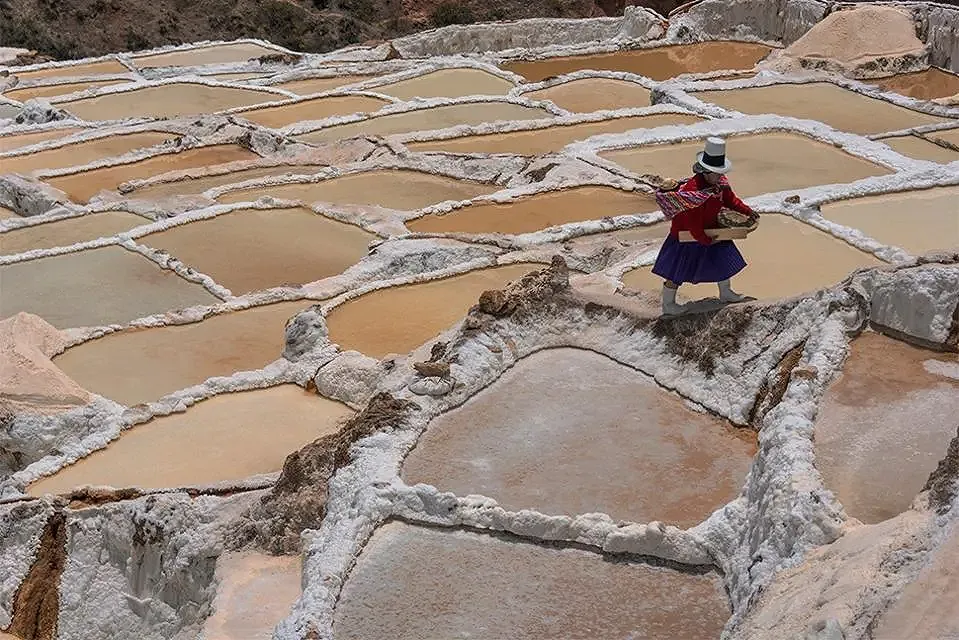
Goulding: Most of the food shows we watch are about people cooking, people telling us where to eat, or, you know, competition television, and that’s largely it. And as much as I respect certain versions of each one of those categories, can we be doing more with this? And that’s kind of been my whole thing for my entire career. I got into food as sort of a necessity, because it was a niche that had some currency back in the early 2000s. It was always like, I’ll get out of this food ghetto soon enough. And I’ll get back to being a literary writer that I never actually was, but I’m gonna get back to it any day now. And instead, food just kept expanding: the balance of food and what you could do with it just kept being pushed outwards. And this feels like the apotheosis of all that has come before it for me. And I think for René as well.
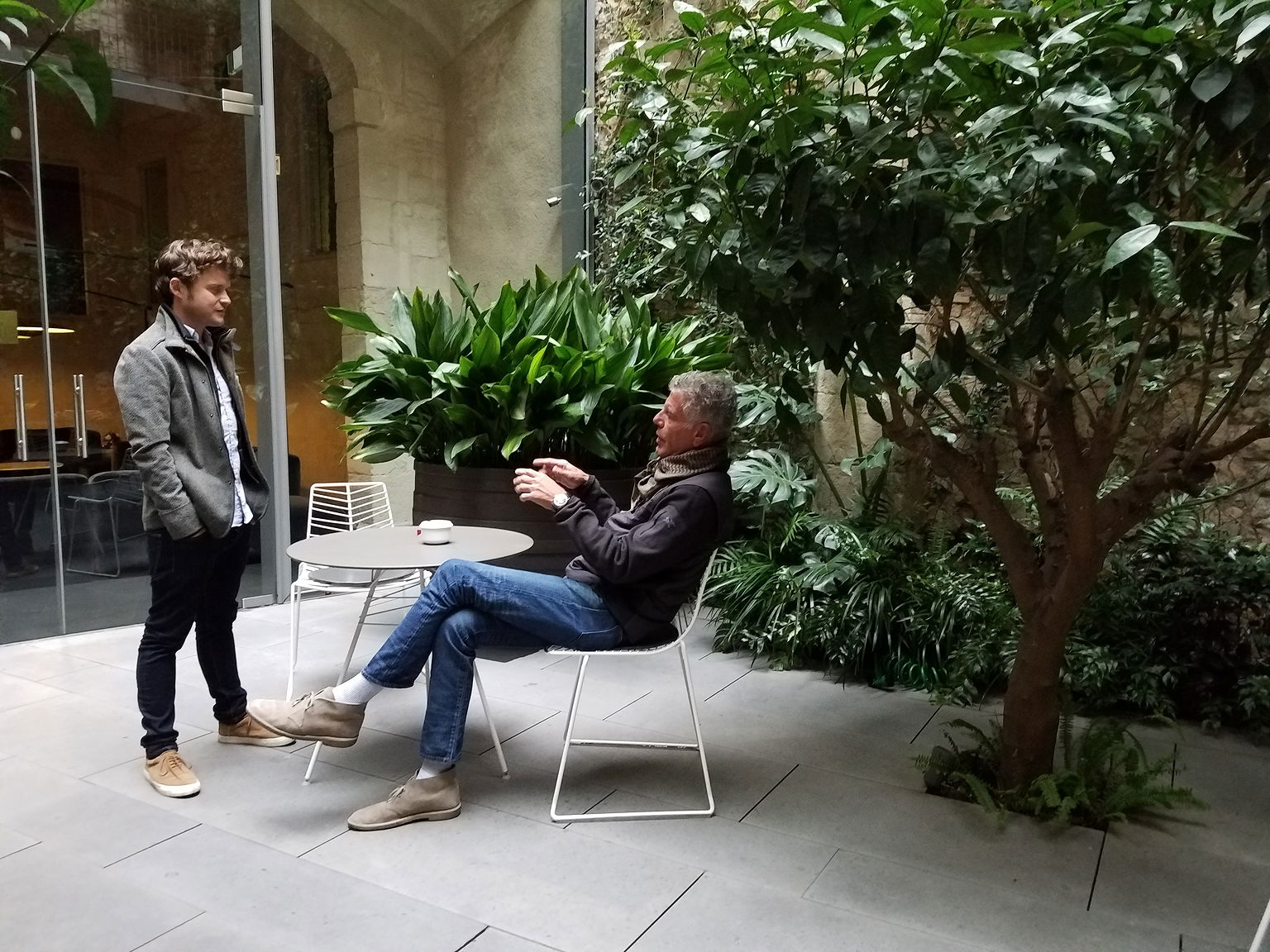
Thornburgh: That chili episode, which is the first episode of the season, it starts with René narrating. As a viewer you think, well, it could be a chef show. And then it goes into documentary, so maybe it’s that. But then it goes into places that you would never expect it to go, which are beautiful and creative, and they’re shot insanely well. That’s Drea Cooper who shot that episode. They are written like a dream, they do things that you just don’t see food television do. Which includes Prin, not to give too much of it away, but he may or may not be doing snow angels in a bed of chilies and soy that you rented out in Bangkok. I got to visit that set. And it was just a hive of activity and there was an actual crane I think. Did I see a crane?
Goulding: There was a crane.
Thornburgh: Just the levels that we’re talking about with the show, this is unlike any food television, it almost feels weird calling it that. Because it’s something completely different. So, listener, go watch the fucking show.
It takes an unusual person to say, ‘No, I’m not going to be just sitting there sniffing ingredients in front of the camera.’
Goulding: I appreciate that. That episode is the opening episode for a lot of reasons but one is because I think within all of those individual scenes, it contains the multitudes of the full season. We lived through a recreation of René’s childhood memory as a boy in Macedonia, watching men of the village pull out chilies from their pockets and eat them at the table. Then there’s this buildup to the end where we land at Noma on a wild dinner night where we had been growing these ghost peppers, these very specific Copenhagen-bred, boot-orange ghost peppers at a million Scoville units in the greenhouse for 120 days before harvesting them for this shoot.
Then we had all the chefs—the chefs were willing, René definitely did not force anybody to do this—eat an entire ghost pepper in the middle of service, and go right back to prepping the most precise, most detail-oriented cuisine on the planet. And then the servers and the sommeliers. And then finally the diners. And the entire thing explodes in this kind of orgy of capsaicin with an orchestra playing “Dance Yourself Clean” in the middle of the Noma dining room. We wanted to really plant a flag and say, ‘Hey, we’re trying to do something new here. And if you don’t see it in that episode, then I don’t know what else we could do.’ But it was a hell of a lot of fun to be able to make that.

I think René and I have 100 more ingredients in our collective mind to say, this is what we would do with a season two or season three.
Thornburgh: Well let’s lock in this moment in time when you’re about to go have dinner with René and Phil Rosenthal. You’re going to give a talk at the 92nd Street Y. This is the beginning of the North American media tour but also the end of this seed-to-sauce process that has been really rough. How are you feeling? Like do you want more of this shit in your life?
Goulding: I do. It’s obviously an extraordinary privilege to be able to do something like this. And to work with these kinds of people and to have the resources and the kind of support that we’ve gotten from Apple, so whenever I say things like ‘this is really hard,’ or ‘this is a tough period of time for me in my life,’ that’s a very personal, self-reflective response. But if people really seem to understand what we’re trying to do, at least some part of it, then I absolutely would love to make more. If there’s a very weak mandate coming out of season one, then you have to really think to yourself, is this really worth everyone’s time? We have five screenings this week between New York and LA and then it drops on the 19th. And then you kind of sit back and you wait to see if people dig it or not. And if they do, I think René and I have 100 more ingredients in our collective mind to say, this is what we would do with a season two or season three.
What do we want to be in a post-Bourdain R&K world?
Thornburgh: Write your congressman.
Goulding: After delivering the last episode, I bought a camper van and took off for the Pyrenees. I tried to hike off the crazy baggage of making this thing, but also everything that’s happened since Tony died. We actually started the post-Bourdain era, you and me, on a hike on the Portuguese coastline, thinking through life, thinking through what’s next, thinking through Roads & Kingdoms. What is it? Who are we? What do we want to be in a post-Bourdain R&K world? And there were two things that came out of that four-day hike. One was for me to say, hey, I want to be able to go out and create something probably on my own and see what comes out, and this is “Omnivore.” And the other was, let’s see if we can put together a League. Let’s see if we can get the same kind of people who read Roads & Kingdoms out in the field with us and tell them stories in an even more intimate way than what we can on the page, and that’s what grew into the League of Travelers. In the exact same amount of time that I’ve been building the show, you’ve been building the League of Travelers.
Thornburgh: Well if the question is, can I drink flagons of wine while leading people around the Puglian countryside, the answer is yes, yes I can.
Goulding: Well I know that you can, and in every photo I see, you’re on some kind of perch with a beverage in hand, and usually the other hand is in some kind of gesticulation of sort, which is such a great pose for you.
Thornburgh: Somewhere between Captain Morgan and Billy Goat.
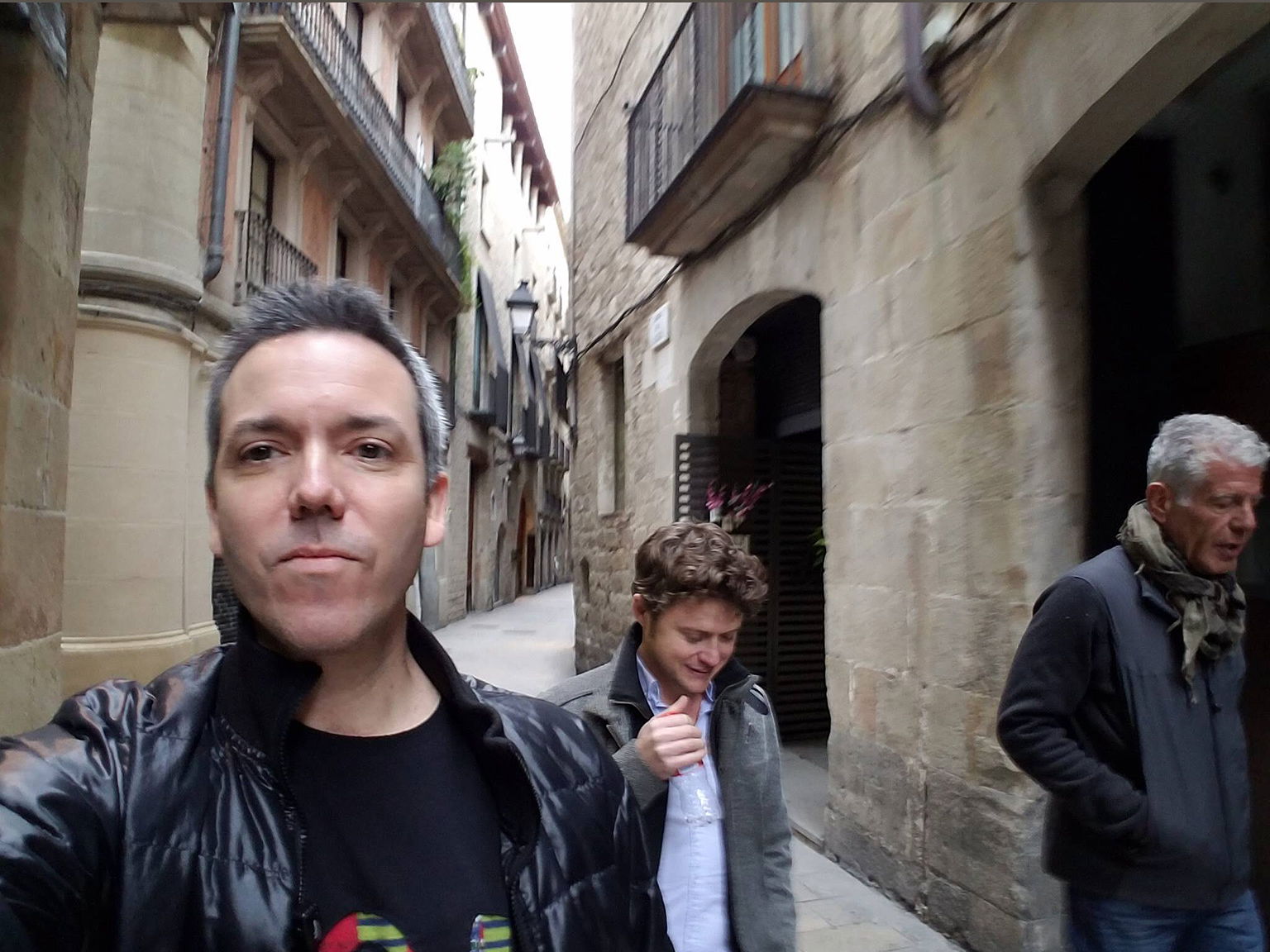
Goulding: But I know you’ve been on a similarly meandering, circuitous, wild, internal journey in the same amount of time, these last four or five years. How are you looking at things now?
Thornburgh: Talking about that hike in Portugal, we always had one side of things that had worked really well and the other that had not, specifically creative and business. Creative great, business fucking disastrous. I think it’s always good in a darkening world to take a moment to say, alright, yes, we’re actually doing well. I could not be more excited about “Omnivore” and the sheer act of creation to get this on the screen, but I’m also super happy that Roads & Kingdoms is not dead. I mean, it was pretty dead.
Goulding: It’s amazing.
Thornburgh: It’s ironic to say this on a podcast that I’ve been trying to drown in the bathtub for the last two years and that we’re reviving for “one night only.” But I do feel that it’s all related. You need to have a business. You need to have a budget from Apple. You need to have your own feet that you can stand on as Roads & Kingdoms. It’s great to just be here, to know that we’re going to be here. And I will say, it’s incredible to see on the screen on “Omnivore” some of the people that we get to know and get to hang out with in different places around the world. It’s all surviving somehow. A lot of it are ideas, the Bourdain ideas, the precedent that he set: that shit lives on, but only if you build on and around it. It’s very fucking edifying just to be out here.